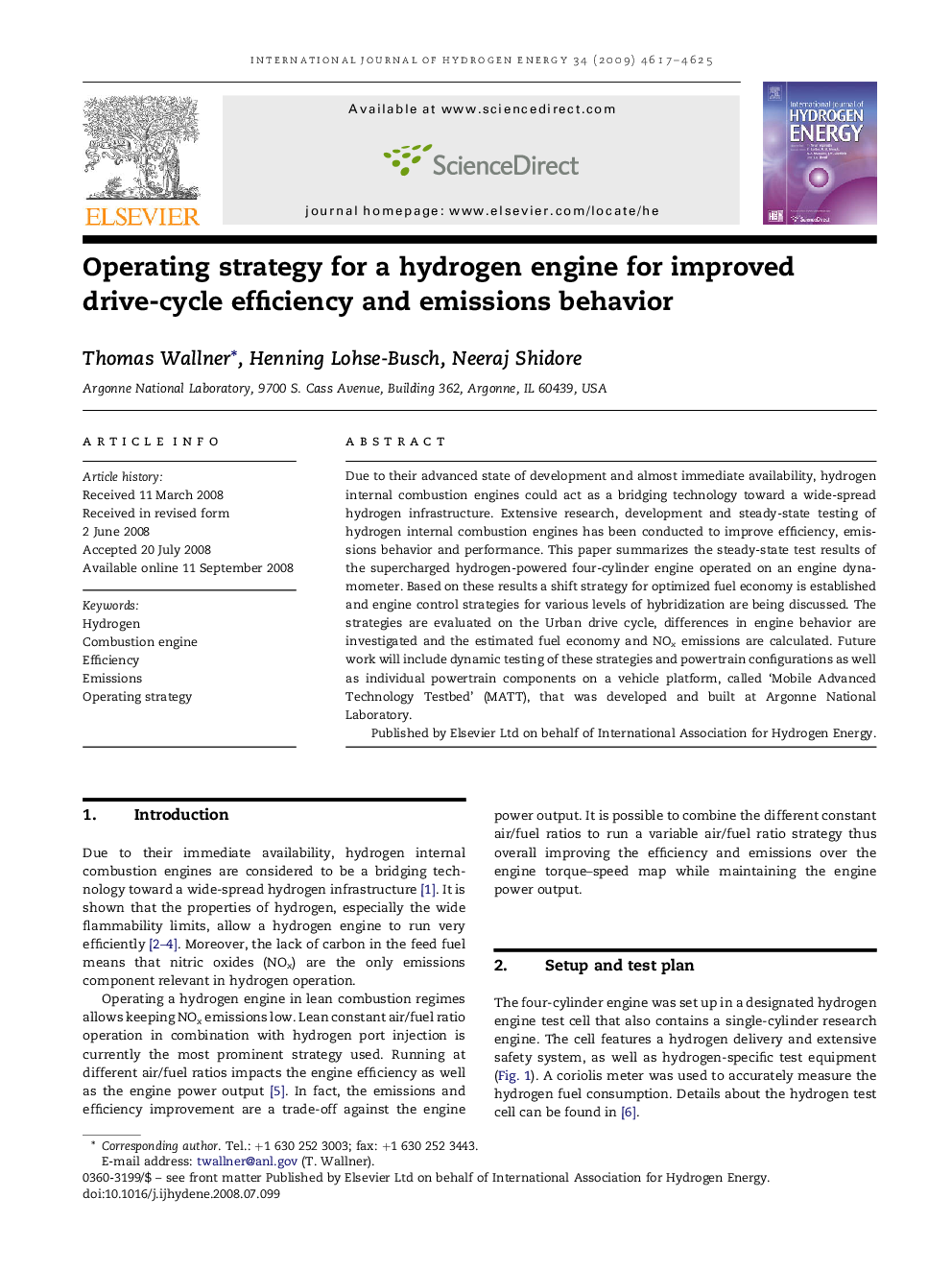| Article ID | Journal | Published Year | Pages | File Type |
|---|---|---|---|---|
| 1273880 | International Journal of Hydrogen Energy | 2009 | 9 Pages |
Due to their advanced state of development and almost immediate availability, hydrogen internal combustion engines could act as a bridging technology toward a wide-spread hydrogen infrastructure. Extensive research, development and steady-state testing of hydrogen internal combustion engines has been conducted to improve efficiency, emissions behavior and performance. This paper summarizes the steady-state test results of the supercharged hydrogen-powered four-cylinder engine operated on an engine dynamometer. Based on these results a shift strategy for optimized fuel economy is established and engine control strategies for various levels of hybridization are being discussed. The strategies are evaluated on the Urban drive cycle, differences in engine behavior are investigated and the estimated fuel economy and NOx emissions are calculated. Future work will include dynamic testing of these strategies and powertrain configurations as well as individual powertrain components on a vehicle platform, called ‘Mobile Advanced Technology Testbed’ (MATT), that was developed and built at Argonne National Laboratory.
